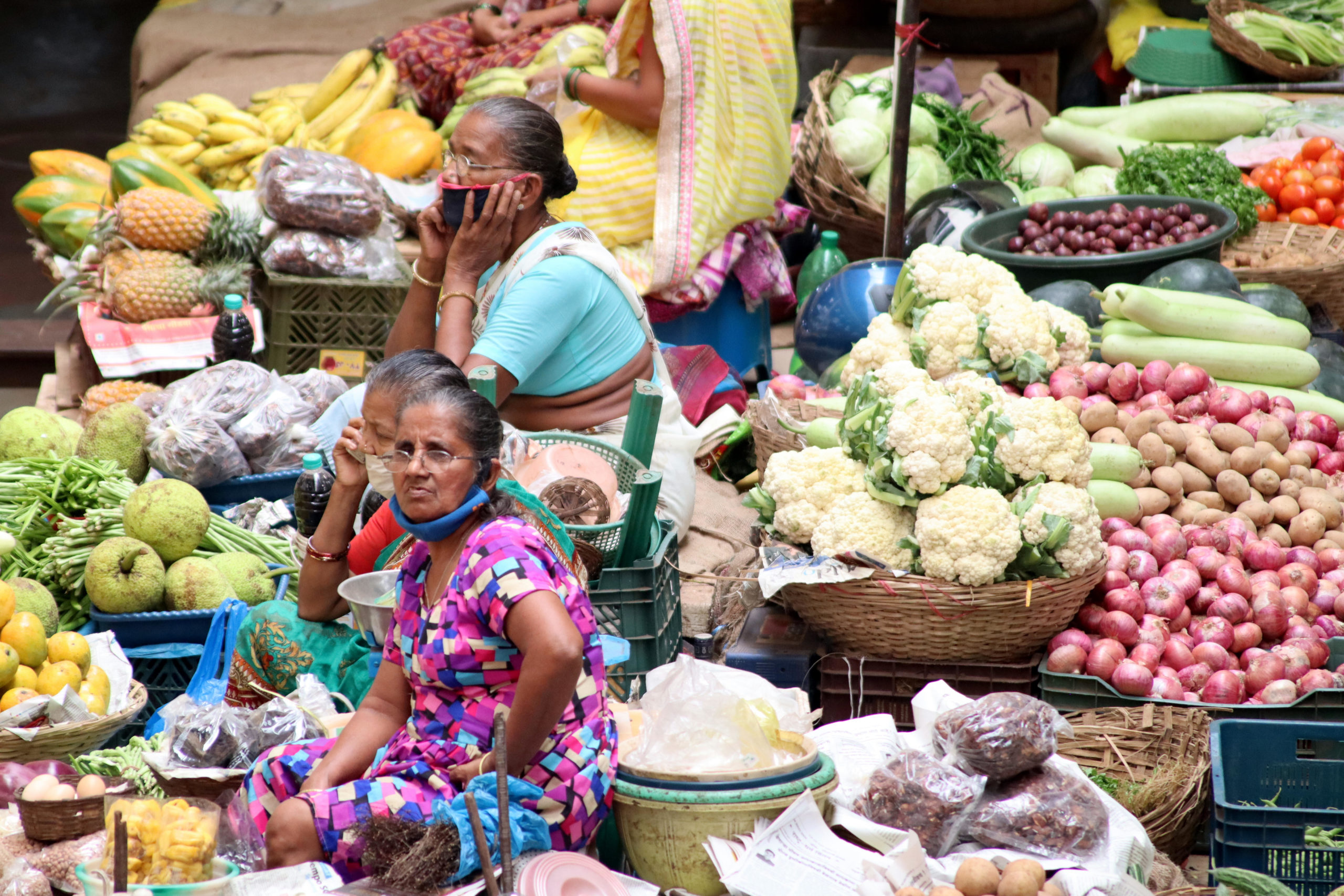At the Panjim Market in Goa, local vendors like Tulsi, 55, seem unconcerned about the second wave. Sitting on an elevated platform under the soaring roof of the market, she’s surrounded by piles of mangoes and steel cups full of shiny black local berries.
“What can one do?” she asks philosophically. We just have to get on with our lives, she adds.
In another corner of the market, Maria Estrocio, 60, counts out little tamarind pieces for a customer. Cane baskets at her lap hold bottles of home-made coconut oil, vinegar, dried mango stones, and coconuts, all produce from her garden. “There’s hardly any business right now but we manage,” she says.
Her husband is unemployed and has been for many years now. “He can’t work,” she says while shrugging her shoulders. The first lockdown hit the Estrocio family badly. “In the morning I used to sit in the market and in the afternoon I cooked meals for a family. That stopped after the lockdown and they haven’t called me back,” she says.
Like many families, Maria’s two children, in their early 20s, also lost their jobs and had to return to their parents’ home because paying rent was impossible. Maria’s youngest daughter has a Masters in Philosophy, an all but useless degree in helping her find a job this past year.
It’s a little past 10a.m. on a weekday morning and Panjim’s Municipal Market is busy. Except for the masks on people’s faces (or placed languidly on their chins), you’d never know that Goa is seeing the biggest spike in positive COVID cases and deaths.
Up until this past March, deaths due to COVID were hovering around zero to three each day in Goa. The number of positive cases had dropped drastically over the past few months. Buoyed perhaps by the numbers or a year indoors, residents and visitors alike ignored SOPs and warnings. Weddings with hundreds of people were held in Goa’s towns and cities. On the beach belt, international DJs continue to be flown in for parties to entertain party-goers from across the country.
With over 15,600 active cases in the state, cases have spiked in the past few weeks. Goa’s death toll has crossed 1,000 and one in three people tested are testing positive for the coronavirus.
Fruit and vegetable vendors call out to people crossing through the market, offering up locally grown berries, papaya and coconuts. There’s yellow everywhere you look. Goa’s beloved Mancurad mangoes are in stock, currently selling for a high price of Rs. 1100 (nearly $15 USD) a dozen. There are few takers at that rate.
In ordinary times, fruit vendors would not be worried about the neat pyramid of mangoes awaiting a buyer. Some consider mangoes to be nature’s annual reward for hard work. Come summer (and the eventual reduction of prices), residents can gorge on the perfect hit of succulent sweetness that leaves them beaming.
This year, the smiles are missing.
Both Tulsi and Maria have not yet gotten the vaccine, even though it is available for free at local government health centres. “I heard that you can get COVID-19 if you take the injection,” Maria says.



